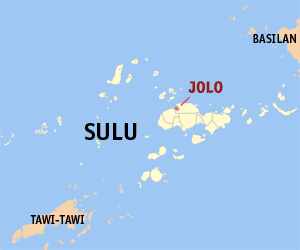
(Photo from Wikipedia/Mike Gonzalez)
MANILA – In wake of the rising security challenges in Southeast Asia, the defense chiefs of the Philippines, Malaysia and Indonesia have meet in Manila Monday to explore the possibility of conducting trilateral air and maritime patrols in common areas of concerns by the three nations.
This is an obvious reference to the Sulu Sea, the maritime area bordering the three nations where Abu Sayyaf Group (ASG) bandits have infiltrated and launched several kidnapping attacks against Malaysian and Indonesian seafarers.
Present during the trilateral meeting were Department of National Defense (DND) Secretary Voltaire Gazmin; the Minister of Defense Malaysia, His Excellency Dato’ Seri Hishammuddin Tun Hussein; and the Minister of Defense of the Republic of Indonesia, His Excellency General (R) Ryamizard Ryacudu,
The meeting was conducted in the spirit of cordiality, mutual understanding and good neighborliness.
It reaffirmed the commitments made last May 5 in Yogyakarta, Indonesia by the Foreign Ministers and the Chief of Defense Forces of the three countries in addressing regional maritime and security challenges affecting the three countries.
During the meeting, the defense ministers raised concern over the recent incidents of kidnappings and armed robbery at sea in the maritime areas of common concern, and reaffirmed the need, commitment and collective responsibility of the countries to address such threats that undermine peace, security and prosperity of the region.
All three agreed that the best practices shared by Malaysia and Indonesia on their experiences in the Malacca Straits Patrol may be adopted as a model for trilateral cooperation to address common maritime security concerns.
In this regard, the three deliberated and have agreed in principle for the armed forces and/or relevant agencies to explore the following measures:
* Coordinated activities among the militaries of the three countries, focusing on maritime security;
* Possibility to establish joint military command posts at designated locations including ad hoc military liaisons on board;
* Trilateral maritime and air patrol at the maritime areas of common concern;
* Trilateral Maritime Patrol Working Group which would set the operational directions on the conduct of the trilateral maritime patrol. The Maritime Command Centers shall be established by the respective countries and shall retain overall responsibility for the tasking and deployment of their respective assets;
* A transit corridor within the maritime areas of common concern which will serve as designated sea lanes for mariners entering the maritime area of common concern;
* Information and intelligence sharing pertaining to the maritime area of common concern; and
* A trilateral database sharing mechanism.
The ministers also agreed for the armed forces and relevant agencies of the three countries to expedite the crafting and finalization of relevant Standard Operating Procedures and hopes to conduct the next trilateral meeting soon after.